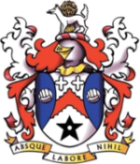THE STALYBRIDGE BAND was founded in 1809 by Thomas Avison and Billy Hall. An agreement was made that all members would pay 3d per week towards band funds. At this time there was 8 members, each of whom attended the home of William Oldham in Motram for music lessons.
By 1812 the band had 13 members and rehearsed at the General Baptists in Spring Street, Stalybridge. A date was set for the Bands first outing at the local Pace Egging Parade which was on the Monday before Easter Sunday, 1814. This date was listed by the Centenary Committee as the first time that Stalybridge Band played for the Public.
Thomas Avison is listed as the Bands first conductor. At this time the band played lead melody parts on Flutes and Clarionets, with the other parts played on Brass instruments known as the Serpent, Ophicleide and Natural Trumpets (Trumpets without valves).
The Band next pubic performance was on 24th June 1815 at the procession and foundation stone laying of Chapel St Sunday School, Stalybridge. However, in 1814 / 15, the valve cornet was developed in France and as a result, in the early 1840’s the Stalybridge Old Band became the first All Brass Band in Britain.
On Easter Monday 1816 the newly named STALYBRIDGE BRASS BAND proudly displayed their new sky-blue uniforms in an Oddfellows’ procession in Glossop, Derbyshire. On 16th August 1819 the band performed a Concert in Manchester at a meeting which had been organised by the Manchester Patriotic Union Society, a political group that agitated for radical parliamentary reform and the repeal of the corn laws. They had invited a number of speakers, including Richard Carlile, John Cartwright and Henry Hunt, to a public meeting in St Peter’s Field, Manchester. A considerable crowd from all around the county of Lancashire had gathered for the meeting; modern estimates are around 60,000 or 80,000. People expected a peaceful meeting and many were wearing their Sunday clothes. Some carried banners with texts like “No Corn Laws”, “Annual Parliaments”, “Universal Suffrage” and “Vote By Ballot.”
The magistrates observing the meeting decided to stop it, but when the reading of the Riot Act did not help, they gave orders to arrest the leaders. Military aid was requested and magistrates sent for the Manchester and Salford Yeomanry. Sixty Yeomanry cavalrymen entered the field brandishing their cavalry sabres and charging towards the cart that served as the speakers’ stand. When some demonstrators tried to stop them by linking their hands, they began to attack them with their sabres. When the cavalry reached the cart, they arrested a number of people. The Yeomanry then began to strike down the flags and banners of the crowd with their sabres.
Eleven people were killed and about 500, including 100 women, injured, many trampled by horses.
This meeting became known as the “PETERLOO MASSACRE”.
In the 1840’s the band became the first Brass Band in Britain to have all brass piston valved instruments.
Under the baton of J Melling the band took part in the Crystal Palace – Great National Brass Band Contest held 10th and 11th July 1860. Over 100 bands took part with the best 12 chosen to compete for the prizes. One of which was the Stalybridge band. Unfortunately, they weren’t in the prizes at the end of the day, first prize being taken by the Black Dyke Mills Band.
In 1868 the famous Alexander Owen joined the band as Principal Cornet and Conductor at the age of 16. Alex made his debut at the British Open Championships with the band in 1870. Stalybridge Band still have the cornet and baton which he won in at the 1874 British Open.
In 1880, the great John Gladney – know as the ‘Father of Brass Bands’ – was Conductor at Stalybridge.
From those early days, the band’s played on, and we’re still playing, more than two centuries after we were first formed. Here’s to the next two hundred years!

